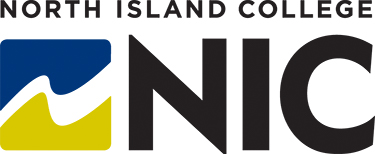Dr. Stephen Cross, Research Chair in Sustainable Aquaculture at North Island College, has been involved with aquaculture development and research in Canada since 1985. He has worked with industry, government, and academia on all aspects of environmental management for coastal aquaculture. Dr. Cross has also assisted with regulatory development in Chile and Thailand, on academic curriculum development in Mozambique, and on projects in the U.S. and Australia.
With growing global demand for sustainable seafood, the major focus of research at North Island College will be to support sustainable aquaculture industry in Canada by assisting in efforts to diversify production through integrated systems, increasing efficiencies in short and long-term environmental management approaches, and increasing public awareness and acceptance of aquatic food production (“fish farming”) for Canada.
Dr. Cross, in partnership with local industry partners Marine Harvest Canada, Grieg Seafood, Cermaq Canada and Creative Salmon, will focus on four applied research and development themes: refining and testing new environmental monitoring protocols, introducing finfish aquaculture into B.C., developing an integrated coastal surveillance platform, and deepening understanding of B.C. aquaculture.
Research in new environmental monitoring protocols will design, refine and test new approaches for environmental management of the waste discharge from farms in an effort to address many of the technical challenges associated with current methods. It aims to provide technical options that are rigorous and scientifically-defensible as well as cost-effective and efficient.
Inorganic nutrient release from fish farms offers an opportunity for the development of partial Integrated Multi-Trophic Aquaculture (IMTA) in existing farm operations. North Island research explores this approach and the design of a system and economic modeling for a fish-kelp component for the industry as a whole.
Coastal surveillance researchers are designing and testing a standardized, water quality monitoring station for farm site installation which requires minimal maintenance. The design includes web-based telemetry and a network for industry-wide data acquisition, relay, consolidation, analysis, and access for multi-stakeholder use. Industry will benefit through linkages to a fish heath database that will allow local or regional assessments of performance.
As most aquaculture in B.C. takes place in remote coastal locations, the general public has little opportunity to visit “fish farming” facilities. In an effort to make aquaculture accessible, a web-based viewing platform will be developed situated in several locations both above and below water and will allow user control of remote cameras. Researchers will pilot these systems for use in the classroom and in long-term aquaculture displays in the Comox Valley Visitor Centre, the Campbell River Discovery Passage Aquarium, and the Vancouver Public Aquarium.


